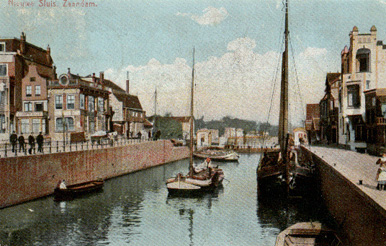 Themes
Themes
Navigating the site:
Paz, Octavio
Themes are like threads folded in a story's plots.
![]()
themes | thesis | tool stories | myths | allegories | stories | four idols | fictions | writing
Those themes in the history of technology are:
- the heresy of knowledge,
- the simplistic desire for truth, and
- the ambiguity of the human desire for control over the forces of nature.
A theme in Darwin's story of natural selection is
Survival of the fortunate, is a more sensible, defensible and less uncertain interpretation of Darwin's descent by means of natural selection, given what we do know today of genetics, selection ecology and paleontology.
Frankenstein is an important theme in modern society because of the use of knowledge, anatomy and electricity in the story by Mary Shelley.
Frankengenes have become one hysterical reaction to the biological revolution called "genetic engineering," that has also swept up stem cell research into the fears the public expresses over radical new techniques in medicine, therapy and agricultural genetics.
The base sequences of DNA that code for proteins because of how the sequences are arranged on the double helix wrapped tightly within the chromosomes are called genes.
Genes actually are made of molecules that make amino acids, literally, the building blocks of proteins.
Writer, Mark Ridley, has called genes, "stories" because they convey information about life.
Perhaps genes are more properly seen as recipes, or scripts that must be brought to life, orchestrated, or "made" by some master. In the case of genes the master molecule is RNA.
These base pair sequences are found in the chromosomes [shown here] twisted around proteins that make up the actual chemical components of what biologists call, the gene and what geneticists refer to as a "genotype." Evelyn Fox Keller, in The Century of the Gene, refers to this physical and chemical manifestation of order as having "particulate materiality."
Clearly genes, or so Keller argues, are more than codes for making proteins. They are complex expressions (phenotype) of the underlying material processes and instructional guidelines mediated by proteins and RNA in the nuclei and cytoplasm of cells. Thus the closer we get to observing genes the less clearly they appear. For genes are not just pieces
"The Unseen Genome: Beyond DNA" genetic vs. epigenetic considerations are discussed here.
How
to write about concepts using a clear
thesis.
![]()
Dimensions
index
Genetics
index
Geology
index
Global
Warming index
Image's index
Landscape index
Nature
index
Photograph
index
Population
index
Science
index
Social
Sciences index
Technology
index
Vocabulary
(guide) index
![]()
Science Index | Site Analysis | Population Index | Global Warming Index | Natural places Index | Brief | Genetics related visually
Index to visual aspects of genetics related topics



